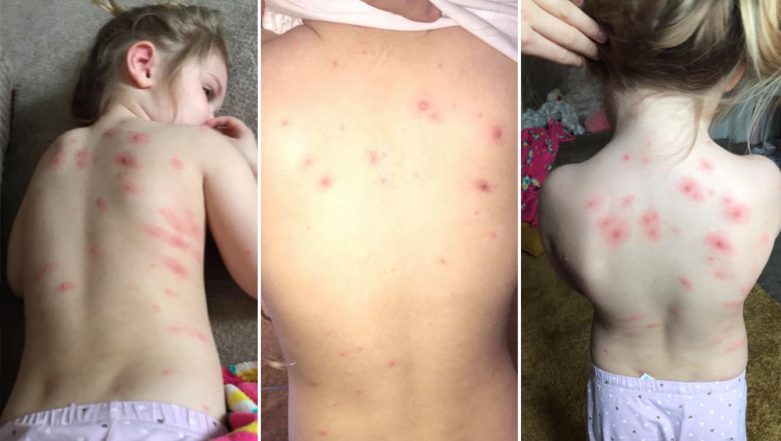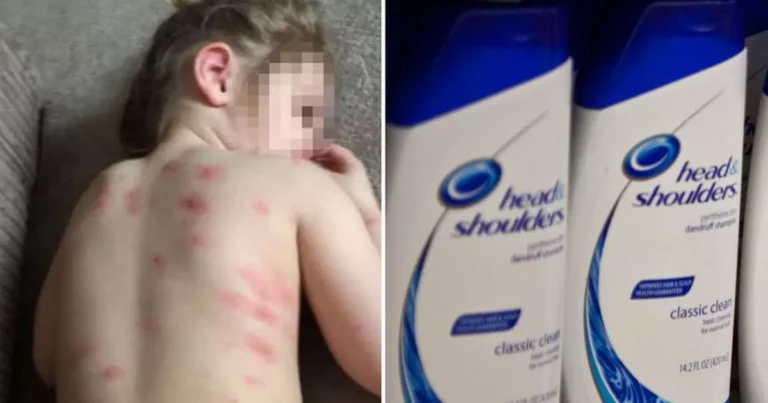Yes, it is generally safe to use a mild and hypoallergenic shampoo during chickenpox. Opt for a gentle, fragrance-free shampoo specifically formulated for sensitive skin. When applying the shampoo, do so with care, avoiding direct contact with the chickenpox blisters.
Further, use lukewarm water for rinsing and consider diluting the shampoo to minimize any potential irritation. While maintaining personal hygiene is essential, it’s important to be gentle to avoid discomfort.
If you experience any discomfort during shampooing, stop immediately and consult with your healthcare professional for alternative hair care advice. Overall, a cautious and gentle approach to shampooing can contribute to maintaining cleanliness and comfort during chickenpox.
Understanding Chickenpox

Chickenpox, caused by the Varicella-zoster virus, is characterized by several distinctive symptoms and is highly contagious. This comprehensive guide outlines its symptoms, transmission, potential complications, available treatments, and preventive measures.
II. Symptoms:
Chickenpox manifests with a distinctive three-stage rash, progressing from red bumps to fluid-filled blisters and ultimately scabs. Other common symptoms include a mild fever (around 100-103°F), fatigue, decreased appetite, and occasional headache and muscle aches.
III. Transmission:
The virus is highly contagious from the onset of symptoms until all blisters have crusted over (typically 5-7 days). Transmission occurs through airborne droplets from coughs or sneezes, direct contact with blisters, and contact with contaminated objects such as clothing or linens.
IV. Complications:
While generally mild, chickenpox can lead to complications, including bacterial skin infections due to scratching, pneumonia (more common in adults and immunocompromised individuals), rare cases of encephalitis (brain swelling), and the potentially fatal Reye’s syndrome affecting the brain and liver.
V. Treatment:
There is no specific cure for chickenpox, but supportive care can alleviate symptoms. Measures include using calamine lotion or oatmeal baths to relieve itching, over-the-counter pain relievers for fever and discomfort, antihistamines to reduce itching, staying hydrated, and resting. In severe cases or for high-risk individuals, antiviral medications may be prescribed.
VI. Prevention:
Prevention is key, with the Varicella vaccine proving highly effective. Two doses are recommended for children, and a booster is advised for adolescents and adults. Good hygiene practices, especially frequent handwashing, help prevent virus spread. If infected, isolation is crucial until all blisters have crusted over to avoid transmitting the virus to others.
General Recommendations for Shampoo Use During Chickenpox

Safety of Using Gentle, Tear-Free Shampoo
- Safe Application: The use of gentle, tear-free shampoo during chickenpox is generally considered safe.
- Hygiene Considerations: Complete avoidance of shampooing is unnecessary and may compromise hygiene, potentially exacerbating itching and discomfort.
- Product Selection: Opt for mild, fragrance-free, and hypoallergenic shampoos to minimize skin irritation.
- Bathing Tips: Choose lukewarm baths or showers, incorporating diluted shampoo, as opposed to hot water, which can contribute to skin dryness and heightened itching.
Gentle Application and Rinsing
- Application Technique: Apply the chosen shampoo gently using your fingertips, ensuring to avoid direct contact with the chickenpox blisters.
- Rinsing Method: Thoroughly rinse with lukewarm water, employing a soft cup to pour water over your head instead of using a direct shower spray.
Dispelling the Myth of Complete Shampoo Avoidance
- Addressing Misconceptions: Dismissing the notion of abstaining from shampooing entirely is essential.
- Potential Drawbacks: Skipping shampoo may lead to scalp build-up, attracting bacteria and intensifying itching.
- Hygiene Impact: Neglecting hair hygiene can result in discomfort and impact social interactions.
- Well-Being Consideration: Gentle shampooing contributes to overall well-being and may facilitate a quicker recovery.
Importance of Balancing Hygiene and Comfort
- Hygiene Maintenance: Emphasize the significance of striking a balance between hygiene and minimizing irritation.
- Technique Emphasis: Encourage gentle hair washing techniques, avoiding aggressive scrubbing, and focusing on scalp rinsing. Patting hair dry is preferable to rubbing.
- Comfort Prioritization: If shampooing causes discomfort, advise immediate cessation and consultation with a healthcare professional for alternative hair care recommendations.
- Comprehensive Hygiene Management: Highlight the importance of additional hygiene measures, including wearing loose clothing, trimming nails to prevent scratching, and applying soothing ointments like calamine lotion for comprehensive care.
Additional Tips:
- Limit Hair Washing: To prevent skin dryness and heightened itching, limit hair washing to 2-3 times per week, unless otherwise advised by your doctor.
- Gentle Drying Technique: Pat your hair dry with a soft, absorbent towel instead of rubbing, as rubbing may irritate the chickenpox blisters.
- Nail Maintenance: Keep your nails short to minimize the risk of scratching and breaking blisters, which could lead to infection. Regularly trim and file nails to ensure smooth edges.
Alternatives to Traditional Shampoo: Gentle and Effective Options
Traditional shampoos, known for their effective hair-cleaning properties, can sometimes be harsh and stripping, especially for sensitive scalps or during conditions like chickenpox. Fortunately, there are several gentle and effective alternatives worth exploring:
Oatmeal Baths
- Preparation:
- Grind rolled oats into a fine powder using a blender or food processor.
- Add 1/2 cup of colloidal oatmeal to a warm bath.
- Soak your hair and scalp for 15-20 minutes, gently massaging the oatmeal into your scalp.
- Rinse thoroughly with lukewarm water.
- Benefits:
- Soothes itchiness and irritation.
- Reduces inflammation.
- Moisturizes and nourishes the scalp.
- Leaves hair soft and manageable.
Lukewarm Water and Gentle Cleansing
- Procedure:
- Wet your hair with lukewarm water.
- Gently massage your scalp with your fingertips for a few minutes to loosen any dirt or oil.
- Rinse thoroughly with lukewarm water.
- Benefits:
- No harsh chemicals or additives.
- Gentle on sensitive scalps.
- Can help train your hair to produce less oil.
Use of Fragrance-Free and Hypoallergenic Soap
- Application:
- Lather up the soap in your hands.
- Gently massage the lather into your scalp and hair.
- Rinse thoroughly with lukewarm water.
- Benefits:
- Offers more cleansing power than water.
- Gentle on sensitive skin.
- No harsh fragrances or irritants.
FAQ’s
1. What shampoo is good for chicken pox?
Head and Shoulders shampoo is considered beneficial for chickenpox as it contains Zinc Pyrithione, known for its anti-inflammatory effects, promoting healing and reducing itching.
2. Is it OK to take a shower during chicken pox?
Yes, it is okay to take a shower during chickenpox. Regular bathing with soap and water is recommended to reduce the risk of developing a secondary infection. Stay home until all blisters have crusted over to prevent the spreading of the virus.
3. What is the best wash for chicken pox?
For chickenpox, warm or cool baths with oatmeal bath products, such as Aveeno, are recommended. This helps reduce itching, and adding ground oatmeal to the bath can further soothe the skin.
4. What can I put in my bath for chicken pox?
Colloidal oatmeal is an excellent addition to the bath for chickenpox. It dissolves in warm water, reducing itching. You can also create a paste with water and apply it directly to blisters to combat itchiness and promote drying.
5. Can I wash my face during chicken pox?
Yes, you can wash your face during chickenpox, but it’s advisable to avoid soap, as its chemicals may cause itching and stinging on already ruptured blisters. Be gentle while washing to prevent further irritation or rupturing of the boils.
Final words:
In conclusion, using shampoo during chickenpox is generally considered safe, provided it is a mild and hypoallergenic option designed for sensitive skin. Maintaining personal hygiene, including hair care, is crucial for overall well-being during this time. Opting for gentle application techniques, avoiding direct contact with blisters, and using lukewarm water for rinsing can help minimize potential discomfort.
It’s essential to prioritize comfort and be attentive to any signs of irritation, stopping immediately if needed. Consulting with a healthcare professional for personalized advice is advisable if there are concerns or specific conditions. Ultimately, a thoughtful and gentle approach to shampooing can contribute to cleanliness and comfort while managing chickenpox.

